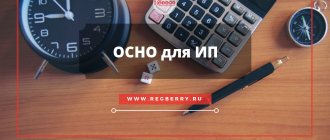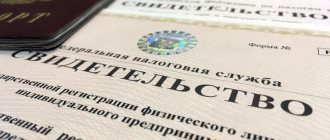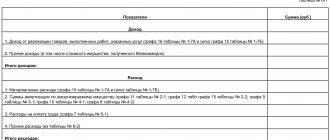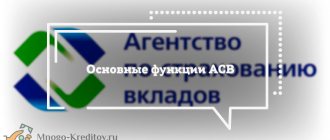Continued transition to mandatory labeling of goods
Already this year, a lot of work has been done in this direction. The government, together with the business community, conducted pilot projects on labeling tobacco, shoes, fur products, and some medicines. Next year, work in this direction will continue. In general, legislation on labeling is constantly changing manually, mainly in terms of deadlines. So, from 2020 the following are subject to mandatory labeling:
- light industrial goods;
- cigarettes, cigars, cigarillos;
- photographic products;
- car tires;
- bicycles;
- other product categories.
Entrepreneurs are already being registered in the mandatory labeling system, but technically it is still possible to sell unlabeled goods. From the year 20 this will become prohibited. In the future, the number of products subject to labeling will increase - until 2024. From this year, it will be necessary to label all goods sold through retail stores without exception. The main goal of the law is to reduce gray imports and increase tax collection.
New amounts of insurance premiums for individual entrepreneurs for themselves
First, we will tell you about changes in tax legislation from 2020 related to the payment of insurance premiums by individual entrepreneurs for themselves. Each individual entrepreneur is required to transfer these amounts, even if his business does not generate income (with the exception of grace periods when activities are not carried out for certain reasons). You also don’t have to pay fees if the entrepreneur switches to paying tax on professional income.
Personal insurance premiums are divided into two groups:
- mandatory or fixed, the size of which is the same for all individual entrepreneurs;
- additional if the entrepreneur’s annual income exceeds 300 thousand rubles.
Mandatory contributions for individual entrepreneurs in 2020
established by Article 430 of the Tax Code of the Russian Federation and
amount to 40,874 rubles
:
- for pension insurance – 32,448 rubles;
- for medical insurance – 8,426 rubles.
It is also known what changes to individual entrepreneur insurance are planned to be made in the coming years. The Ministry of Finance has already prepared a bill containing such amounts.
| Year | Total | Pension insurance | Health insurance |
| 2021 | 45 218 | 36 455 | 8 763 |
| 2022 | 49 547 | 40 433 | 9 114 |
| 2023 | 52 536 | 43 057 | 9 479 |
| 2024 | 55 765 | 45 907 | 9 858 |
But the long-awaited change in the procedure for calculating the additional contribution to the simplified tax system Income minus expenses was never included in Article 430 of the Tax Code of the Russian Federation. This means that payers of the expense simplification continue to calculate an additional contribution on all income received, without taking into account business expenses.
Otherwise, the procedure for paying insurance premiums for yourself has not changed. The mandatory amount of contributions must be transferred no later than December 31 of the current year, and the additional contribution, if any, no later than July 1 of the next year.
Changes in the patent taxation system - PSN
But legislators, on the contrary, are going to improve the patent system. Therefore, businessmen who use UTII should take a closer look at it as an alternative to “imputation”. True, with a big caveat: “patent owners” will also not be allowed to sell labeled goods . It is logical to assume that PSN will go to a better world after its fellow UTII by 2024, when everything and everyone will be labeled.
Here are the changes that will affect PSN:
- the following will be added to the list of activities covered by the patent: livestock farming and provision of services in the field of livestock farming, crop production and provision of services in the field of crop production;
- The patent itself can be purchased for a period of 1 day. Currently, the minimum period for using PSN is 1 month. This is inconvenient for one-time and seasonal trading. Next year the defect will be eliminated;
- local authorities will be given the right to set their own limits on the use of PSN. They may limit the use of the tax regime depending on the area of the store, the number of cars in the taxi fleet and other parameters;
- Individual entrepreneurs received the right to issue one patent for similar types of activities instead of several. This is permitted when the annual income for household services from the additional list is established by local authorities not only for types of activities, but also for groups or subgroups.
Advantages of the patent tax system
Limitations of tax regimes
From 2020, enterprises that are registered under special tax regimes will not be able to sell goods with mandatory labeling. These modes are considered:
- UTII.
- PSN.
If an organization is already engaged in the sale of these goods, then it cannot switch to the above taxation systems. Products with mandatory labeling include:
- clothing using fur;
- alcohol;
- medications;
- some shoes.
If companies with PSN or UTII continue to sell these goods, they will automatically be transferred to the general system (OSNO). The law does not stipulate administrative liability for violation, but the company will receive additional tax upon transfer.
Introduction of a tax on professional income in all regions of the Russian Federation
At the beginning of 2020, the government adopted a new high-profile law on a tax on professional income, popularly nicknamed the “Tax on the self-employed.” The initiative allowed citizens working for themselves to come out of the shadows into the legal field and pay minimal contributions to the budget: 4 percent of income when working with individuals and 6 percent when working with legal entities.
The innovation started working as a pilot project in 4 regions: Moscow and the Moscow region, the Republic of Tatarstan, the Kaluga region, St. Petersburg and the Leningrad region. It was assumed that this state of affairs would last another 10 years, until 2019. But the government decided to speed up the transition and, starting next year, proposed to extend the tax on self-employed people to all other subjects of the Federation - 81 regions in total.
The main task declared in government circles is to reduce the burden on small businesses, primarily individual entrepreneurs. They may use the new tax as an alternative to existing regimes. However, everything is not so simple here. The fact is that the application of tax on professional income is very limited . For example, it is not suitable for a buy-sell business. The self-employed tax applies only to the provision of services and trade in self-produced products (exclusively handmade). Therefore, for most of the retail sector, such a regime is not an option.
Tax for self-employed
It is no longer possible to sell alcohol in small cafes.
Retail sale of alcoholic beverages in the provision of public catering services in public catering facilities located in apartment buildings and in adjacent areas is permitted only in the specified public catering establishments that have a customer service hall with a total area of at least 20 square meters.
The area of the customer service hall is understood as the area of specially equipped premises of a public catering facility intended for the consumption of finished culinary products, confectionery products and purchased goods, determined on the basis of inventory and title documents.
Subjects of the Russian Federation may establish additional restrictions on the retail sale of alcoholic products (in terms of increasing the size of the area serving visitors in public catering facilities), as well as completely prohibit the retail sale of alcoholic products.
(Federal Law No. 145-FZ dated April 24, 2020 “On amendments to Article 16 of the Federal Law “On state regulation of the production and turnover of ethyl alcohol, alcoholic and alcohol-containing products and on limiting the consumption (drinking) of alcoholic products”)
Raising the minimum wage
In the coming year, businesses are expecting another increase in the minimum wage. It will be 12,130 rubles instead of the current 11,280 . This entails a serious increase in the financial burden for entrepreneurs who have hired employees under an employment contract. Firstly, the wages of employees themselves must be no less than the minimum wage. Secondly, payments to the social insurance fund and the Pension Fund are calculated from this amount.
New for individual entrepreneurs
Our review of changes for individual entrepreneurs in 2020 would be incomplete without talking about new responsibilities for employers. Let's briefly talk about the main ones:
- In connection with the transfer of work books to electronic format, employers must submit a new form to the Pension Fund of Russia - SZV-TD. You must report no later than the 15th day of the month following the one in which the personnel event occurred (hiring, transfer, dismissal, or receiving a statement from the employee about the preferred format of work records).
- If you have more than 10 employees, reporting for them from 2020 must be submitted only electronically. This means that it is necessary to obtain an electronic signature in advance.
- The deadlines for submitting annual forms 2-NDFL and 6-NDFL have been postponed. Instead of April 1, you must report no later than March 1, 2020.
- The minimum wage has increased to 12,130 rubles since January 2020. Check the employment contracts with your employees to ensure that their salaries comply with the new minimum wage. And don’t forget to check the regional minimum wage if it is established in your constituent entity of the Russian Federation.
- If the Federal Tax Service finds that part of the salary is given to employees in an envelope, then the employer will pay personal income tax on the excess amount at his own expense.
Limits on the use of the simplified tax system will change
Simplified language will also undergo significant changes, but, thank God, it won’t go anywhere. Currently, individual entrepreneurs with up to 100 employees and an income not exceeding 150 million rubles can use the regime. After exceeding the norms, it is necessary to apply the general tax regime - OSN.
Starting next year, the limit will be increased: it will be possible to apply the simplification if the income is up to 200 million and the number of employees is up to 130 people . But in this case you will have to pay more. The tax rate will be 8 percent under the “Income” model and 20 percent under the “Income minus expenses” model (currently it is 6 and 15 percent, respectively).
And if you earn more than 200,000,000 and the company employs more than 130 people, you will have to say goodbye to simplification forever.
The main advantages of the simplified tax system
The list of affected industries has been expanded.
The affected industries included:
- 47.19 “Other retail trade in non-specialized stores”;
- 47.99.2 “activities for trading through machines”;
- 32.99.8 “production of folk arts and crafts”.
Currently, the list of affected industries contains codes 47.19.1 and 47.19.2, so organizations with a higher level code, 47.19, cannot count on tax and other support measures.
(Resolution of the Government of the Russian Federation dated May 12, 2020 No. 657 “On introducing changes to the list of sectors of the Russian economy most affected by the worsening situation as a result of the spread of the new coronavirus infection”)
Entrepreneurs using the simplified tax system will stop filing tax returns
Well, it’s not in vain that we tinkered with these online cash registers, really. Thanks to the new cash register, tax authorities see revenue without any paper declarations. There is absolutely no need to duplicate information if it is available online at any time.
True, the technical details remain behind the scenes for now. Most likely, the entrepreneur will calculate the amount of tax himself and pay it to the budget. When checking, the regulator will determine the correctness of the calculations and, if anything happens, make additional charges. Or, on the contrary, it will record an overpayment, which can be offset in the next tax period.
True, the cancellation of declarations will not affect all individual entrepreneurs. Those who do not use online cash registers will continue to submit reporting documents to the tax authorities. In addition to them, the obligation to submit simplified taxation system declarations will fall on individual entrepreneurs working under the simplified taxation system “Income minus expenses” model. If, using the simplified “6 percent of income” tax is paid on revenue, there is no problem: that is what the tax authorities see. But the “Income minus expenses” format takes into account the net profit that will have to be calculated. So there is no way without declarations here yet.
The suspension of debt collection and interim measures has been extended.
The suspension of these measures will apply to legal entities and individual entrepreneurs until July 1, 2020. However, suspension does not apply in certain cases:
- if failure to take debt collection measures may lead to concealment of assets (or other obstacles to collection);
- in relation to those who refused to apply the moratorium on initiating bankruptcy cases.
(Letter of the Federal Tax Service of Russia dated May 26, 2020 No. ED-20-8/ [email protected] “On the extension of the suspension of the application of debt collection measures and related interim measures”)
Changes in personal income tax
And again positive. From 2020, personal income tax will not be levied on unused vacation, child care payments, expenses for the maintenance of disabled children and a number of other incomes. And most importantly, the benefit also applies to such income received back in 2020.
In addition, individual entrepreneurs will be exempt from filing a declaration of expected income - 4-NDFL . Starting next year, individual entrepreneurs will independently calculate advances based on the results of the quarter, half a year and 9 months. Payment deadlines are April 25, July 25 and October 25, respectively.
Basic personal income tax rates in Russia
Changes to special modes
The next important changes for individual entrepreneurs in 2020 are related to preferential or special taxation systems. Let's briefly look at the main tax innovations.
UTII
2020 is the last year of the single tax on imputed income. But some imputation payers will lose their right to it as early as January 1. The ban applies to the retail sale of medicines, products made from natural fur and shoes. However, the remaining footwear products can be sold until March 1, 2020, because only from this date their mandatory labeling begins.
As usual, the deflator coefficient for 2020 has increased. The value of K1 was approved by Order of the Ministry of Economic Development No. 684 dated October 21, 2019 N 684 and is 2.009. However, the coefficient can still be reduced to 2.005, but this will not significantly affect the amount of calculated tax.
Prepare a UTII declaration for only 149 rubles
Entrepreneurs who were entitled to a deduction for CCP will be able to declare it for the last time in their declaration for the 4th quarter of 2020. Individual entrepreneurs on PSN will also lose this opportunity.
PSN
After the abolition of UTII, the patent system will remain the only one where real income is not taken into account when calculating tax. Therefore, PSN will continue to be attractive to small traders and those engaged in household services to the population. However, trading in medicines, fur products and shoes has been banned since 2020, even under patent. This means that sellers of such goods had to have time to switch to the simplified tax system by submitting a notification before the end of 2020.
Unfortunately, legislators decided to give regions more rights to limit PSN. Thus, constituent entities of the Russian Federation have the right to set limits on the number of vehicles, retail and catering facilities (or their area), as well as the area of rented premises and land plots.
And for municipalities of Russia, for some types of patent activity it will be possible to establish the potential income per unit of physical indicator. That is, per employee, vehicle, seat for passenger transportation, square meter of retail and catering facilities. Thus, the cost of a patent for the same type of activity will become more differentiated.
simplified tax system
The main changes for a simplified taxation system are still in the draft stage, but may soon be adopted.
It is expected that the limits on employees and annual income will be increased: up to 130 people and 200 million rubles, respectively. However, those who exceed the usual limits (100 people and 150 million rubles) will pay tax at different rates:
- 8% on simplified taxation system Income;
- 20% on the simplified tax system Income minus expenses.
Prepare a simplified taxation system declaration online
The long-promised refusal to submit annual declarations and maintain KUDiR will become possible from July 1, 2020 (if the bill is adopted in its current version). But for this, two conditions must be met:
- select the object of taxation “Income”;
- conduct proceeds from the sale of goods and services through an online cash register.
Good news for producers of grapes, wine, champagne, wine materials, grape must produced from their own grapes. They will be able to apply the simplified tax system from 2020. Moreover, this is not a draft, but an already adopted amendment to Article 346.12 of the Tax Code of the Russian Federation.
NAP
From January 1, 2020, the coverage area of the new regime in Russia – the tax on professional income – will significantly increase. Nineteen more will be added to the four pilot regions (Moscow and the region, Tatarstan, Kaluga region). And by July 2020, the Ministry of Finance plans to allow the use of NAPs throughout the Russian Federation.
Not only self-employed persons, but also individual entrepreneurs can pay professional income tax. True, taking into account the limitations of this special regime, and there are many of them. The main ones are an annual income limit of 2.4 million rubles and a ban on hiring workers. In addition, only those who provide services, perform work and sell goods of their own production can pay NAP. Trade and production are prohibited under the occupational income tax. Read about what you can trade on NPD here.
The advantages of the new regime include the absence of cash registers and the voluntary transfer of insurance pension contributions (remember that in 2020 this is at least 32,448 rubles). However, this opportunity must be used with caution. Firstly, in this case, the individual entrepreneur will not accumulate length of service for calculating the insurance pension. Secondly, the transferred insurance premiums reduce the calculated tax in all modes except PSN.
If you are considering the possibility of switching to paying NAP, we recommend that you contact us for a free consultation. And don’t forget to immediately submit a notice of deregistration as a payer of the special regime, if you apply it, immediately after registering in the “My Tax” application.
Free tax consultation
Reduction of corporate property tax
The series of positive changes in legislation continues with a reduction in property taxes. Next year the tax rate will decrease to 2 percent (currently 2.2 percent). In addition, regions do not have the right to set a tax rate higher than that determined by federal regulations. The exception is Crimea and Sevastopol, where rates have the right to increase.
In addition, the procedure itself will be simplified. There is no need to make advance payments for corporate property tax. Enough with the declaration. And the tax is calculated based on the cadastral value, and not on the value at the beginning of the tax period, as is the case now.
Parking of commercial vehicles in courtyards
Starting from the new year, commercial vehicles are no longer allowed to park in residential areas, only in specially developed areas. Now drivers of such vehicles will not park in yards after their work shift:
- minibuses;
- trucks;
- Taxi;
- gazelles;
- other transport for individual entrepreneurs or companies.
At the moment, the ban has been approved in St. Petersburg, Moscow and Sevastopol. There are no penalties for violations, but residents can resolve the problem through the court at their own request.
Changing the procedure for working with personal data
Very relevant for online stores and e-commerce. True, the initiative still exists within the framework of the bill on amendments to Federal Law No. 152-FZ of July 27, 2006.
Currently, the law does not establish what to do with personal data that is no longer needed by an entrepreneur. How to destroy them, how long to store them, and so on is unknown. The new law is intended to bring order to the recording of personal information about customers and outline its use.
There is no detailed information yet; it will appear in the final version of the law. And since it is likely to be adopted, it’s time to start preparing for innovations.
What other changes will 2020 bring for individual entrepreneurs?
There are quite a lot of changes and amendments made by legislative bodies to regulations, including those that concern entrepreneurs. Below, in summary form, we list what other innovations await IP:
- From 01/01/2020, entrepreneurs began to receive SMS messages or emails about tax debts and contributions if they gave written consent (see paragraph 7 of Article 31 of the Tax Code of the Russian Federation as amended by Law No. 325-FZ). Such letters and messages should arrive no more than once a quarter.
- From 04/01/2020, inspectors will issue demands for payment of taxes within 1 year if the individual entrepreneur’s debt is at least 3 thousand rubles. Previously, this amount was 500 rubles. If the amount of the debt is more than 3 thousand rubles, the demand is raised within 20s from the moment the relevant decision comes into force (clause 1 of Article 70 of the Tax Code of the Russian Federation as amended by Law No. 325-FZ).
- Regional laws may establish a 2-year tax holiday for individual entrepreneurs who registered for the first time after the entry into force of such laws and chose a simplified tax regime if they operate in the scientific field, the field of consumer services or the hotel business.
***
Thus, the introduced changes affected mainly the relationship between entrepreneurs and tax authorities, although in other areas there is something new in the legislation for individual entrepreneurs.
You can find more complete information on the topic in ConsultantPlus. Full and free access to the system for 2 days.
Responsibility
Violations of the law committed by an individual entrepreneur are punishable by various sanctions.
Most often, individual entrepreneurs are punished for the following offenses:
- Did not submit reports to the tax office. The minimum amount of the fine is set at 1 thousand rubles. But in general, the law establishes a 5 percent fine on unpaid tax (which must be calculated in the report).
- The cash register receipt is not punched when purchasing in cash. The minimum penalty is 10 thousand rubles, but if the amount is large, the calculation is made in the range from 25 to 50% of it.
- Didn't pay tax. The amount of the penalty is 20% of the funds that must be transferred to the budget. But if the underpayment arose due to a gross accounting violation, you will have to pay at least 40 thousand rubles.
- Underestimation of the tax base leads to the following sanctions: if a violation is detected in one year - 10 thousand rubles, if in several - 30 thousand rubles.
- Didn’t register with the funds when hiring the first employee: if the delay does not exceed three months - 5 thousand rubles, if it exceeds - 10 thousand rubles.
- Delay in submitting reports to insurance funds is punishable by at least one thousand rubles, but in general the amount of the fine is calculated from 5 percent of the amount of underpaid fees.
As you can see, the law establishes punishment for an individual entrepreneur mainly for violations in the tax area. Other sanctions, if there are any, are already within the scope of the administrative code. The articles of this document are used by the control bodies of the Ministry of Emergency Situations, Rospotrebnadzor, environmental services, etc.
Basic provisions
Registration of individual entrepreneurs is carried out on the basis of Law No. 129. The law establishes that all information about all persons who conduct business activities is entered into the Unified State Register of Individual Entrepreneurs.
The Law on Self-Employed Citizens of the Russian Federation - has it been adopted and what does it imply?
Registration of businessmen is carried out by the Federal Tax Service. You must contact this government agency to register as an individual entrepreneur.
Also, Law No. 129 regulates the relationships that arise when an individual entrepreneur works with constituent documentation. Based on the law on individual entrepreneurship of the Russian Federation, in order to register a citizen as an individual entrepreneur, it is necessary to provide:
- completed and signed registration application. Its form is approved by government agencies. This form can be asked from a consultant at the authority itself or printed through the tax website;
- identification card of the person who wishes to register as an individual entrepreneur;
- a document that confirms the place of registration and residence of the person who is registered as an individual entrepreneur;
- a receipt indicating that the state fee has been paid;
- certificate stating that there is no criminal record.
Important! A person who believes that his rights have been violated has the right to appeal the decision.
To appeal a decision to refuse registration as an individual entrepreneur, you must contact a higher territorial authority. The complaint must be submitted within three days after the decision to refuse is made. The complaint must be accompanied by documents that will indicate that the citizen has been denied registration.
Before registering, an entrepreneur also needs to study the law on individual entrepreneurship “On licensing of certain types of activities.” This act establishes the types of activities for which it is necessary to obtain a license. The law establishes where you need to go to get a license, and also establishes the conditions and deadlines for obtaining a license.
Important! To carry out certain types of activities, a number of conditions must be met. In some cases these are complex procedures. Therefore, before deciding to act as an individual entrepreneur, you need to realistically assess your capabilities.
An individual entrepreneur, in addition to registering with the tax office, must go through the registration procedure with the Pension Fund. This is done so that insurance premiums are paid into one’s own account, so that a citizen can receive insurance payments before reaching a certain age. Depending on how many contributions are made, the individual pension coefficient (IPC) is calculated. When a pension is issued, he will influence its size.
What do IP laws include?
A list of support measures for systemically important organizations has been determined, as well as the rules for their provision.
Support measures are provided to systemically important organizations in several forms:
- subsidies for the purpose of financial support (reimbursement) of costs (part of costs) in connection with the production (sale) of goods, performance of work, provision of services;
- deferments (installment plans) for the payment of taxes, advance payments for taxes;
- state guarantees of the Russian Federation for loans or bond issues attracted by systemically important organizations as part of measures aimed at solving urgent problems to ensure the sustainability of economic development.
Systemically important organizations may qualify for one or more support measures, provided they meet the established criteria:
- the organization is not a foreign legal entity, as well as a Russian legal entity, in the authorized (share) capital of which the share of direct and (or) indirect participation of foreign legal entities in the aggregate exceeds 50% (the criterion may not be taken into account if a decision is made by the Government Commission on Increasing Sustainability development of the Russian economy);
- an analysis of the financial and economic activities of the organization was carried out and an assessment of its financial stability was carried out (stress test);
- the organization, as of the date of filing an application for support measures, has arrears in taxes, fees, debts on other obligatory payments (except for amounts for which a deferment, installment plan, investment tax credit have been granted, which have been restructured in accordance with the legislation of the Russian Federation, for which there is an entered into the legal force of the court decision recognizing the applicant’s obligation to pay these amounts as fulfilled or which are recognized as uncollectible), in the aggregate not exceeding 10,000 rubles, and also has no overdue debt for the return of subsidies to the federal budget.
(Resolution of the Government of the Russian Federation dated May 10, 2020 No. 651 “On measures to support systemically important organizations”)
Delay in the use of online cash registers
Individual entrepreneurs have the right not to use online cash registers in their activities until July 1, 2021, subject to the following conditions:
- lack of hired workers;
- provision of services and performance of work personally and/or sale of goods of own production.
If an entrepreneur enters into an employment contract with an employee, he is obliged to register an online cash register within thirty calendar days.
As stated above, the most significant changes for individual entrepreneurs in 2020 will occur in individual taxation systems.
Tax issues of individual entrepreneurs' activities
It is no coincidence that the functions of registering individual entrepreneurs and maintaining the register of entrepreneurs have been transferred to the tax service. Registration of individuals as entrepreneurs has as its key goal, among other things, the complete, correct and timely collection of taxes and fees. Unlike other aspects of entrepreneurial activity, almost all issues of taxation of entrepreneurs are collected in one regulatory act - the Tax Code of the Russian Federation. The exception here is the rates and other parameters of regional and local taxes.
To choose the taxation system that is most appropriate for conducting business, a citizen must refer to the second part of the Tax Code of the Russian Federation. It is here that, knowing what the future entrepreneur will do, you can decide on the tax regime. The general taxation regime, the simplified system and the main parameters of UTII are spelled out in the second chapter of the code. For information on regional and local fees, please refer to the laws of the constituent entities of the Russian Federation and the resolutions of local governments.
Please note: An application to switch to a simplified taxation system can be submitted simultaneously with an application to register a citizen as an entrepreneur. And for this, accordingly, it is necessary, using the Tax Code of the Russian Federation, to determine the taxation system used.









